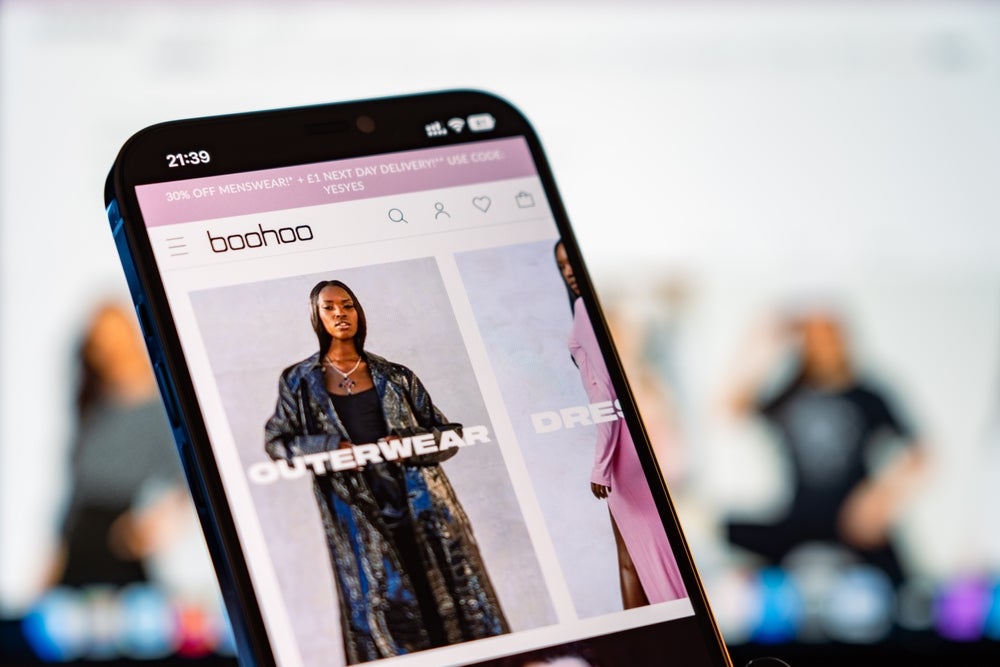
Boohoo, which owns PrettyLittleThing and Karen Millen has joined the ranks of clothing retailers issuing warnings about business conditions worsening as inflation continues to rise, dampening consumer spending.
Over the six months to August, UK revenues fell 19% despite Boohoo offering discounts to help drive value for its primary demographic of the younger generation.
Analysts at Shore Capital said that the group’s “recalibration in revenue expectations is influenced by a slower than anticipated volume recovery and a continued focus on more profitable sales.”
The analysts added that while revenues in core brands did decline by 10%, this was in line with prior expectations of a 10% to 15% decline.
Due to the revenue performance falling short of expectations, Boohoo has revised its sales forecast for the year ending in February 2024, anticipating a decline ranging between 12% and 17%.

US Tariffs are shifting - will you react or anticipate?
Don’t let policy changes catch you off guard. Stay proactive with real-time data and expert analysis.
By GlobalDataBoohoo HY highlights:
- Group revenue over the six months to August fell by 17% to £729.1m compared to the same period last year
- Adjusted EBITDA of £31.3m vs £35.5m a year earlier.
- Operating loss of £21.2m compared with £11.8m loss a year earlier.
- Loss before tax of £26.4m compared with loss of £15.2m
- UK and Europe revenues fell 19 and 16% respectively as the regions continue to battle soaring inflation which is impacting consumers’ disposable income.
- In the US, sales fell 12%, hurt by delivery lead times.
CEO John Lyttle remains optimistic and asserts that there is a “clear path” to returning to profitability as the group’s guidance for profit margins remains on track.
“Over the first half, we have made substantial progress across key projects and initiatives, including the launch of our US distribution centre,” said Lyttle.
“We have seen significant improvements in sourcing lead times and invested in pricing to reinforce our value credentials. We have identified more than £125m of annualised cost savings that support our investment programme.
“Our confidence in the medium-term prospects for the Group remains unchanged as we execute on our key priorities where we see a clear path to improved profitability and getting back to growth.”
Boohoo struggling to outshine Shein
Industry analysts called the set of results “disappointing”.
Louise Deglise-Favre, apparel analyst at GlobalData, noted: “This has forced the group to reckon with reality and drastically lower its full-year guidance to a sales decline between 12% and 17%—far lower than its previous expectations of a drop no larger than 5%.
“Its struggles are largely due to the meteoric rise of Shein, which has jumped to the top of the ultra-fast fashion game and continues to steal market share. Shein is more agile than boohoo and offers unbeatable low prices while keeping up with the endless stream of new micro-trends appearing on social media.
“Paradoxically, the group has also suffered from growing criticism from some consumers against fast fashion, decrying its environmental and social impacts. However, its efforts to boost profitability have led to some success, with an improvement in its EBITDA margin, supporting future investments. It has also strengthened its test-and-repeat model, improving lead times and reducing stock excess, which should allow it to better compete with Shein.
“The boohoo group stated that sales of its core brands (boohoo, boohooMAN, PrettyLittleThing, Karen Millen and Debenhams marketplace) dropped 10%, outperforming its total sales, which indicates that the brands the group acquired during the pandemic, such as Wallis and Dorothy Perkins, have been dragging its performance down. These brands continue to suffer from the dull brand images they had prior to their acquisitions, and the boohoo group so far has been being unsuccessful at refreshing their identities, missing out on the opportunity to diversify its total customer base to a wider age range.”



